Georgia Part 4: Our experience in Georgia's Pankisi Valley
Pankisi Valley: Immersion in Chechen Culture (29)
"Don't go to the Pankisi Valley, it's too dangerous there". It was 2012 when Nazy Dakishvili was warned with these words by her colleagues at the law firm in Tbilisi, when she told them about her travel plans. But Nazy already knew very well what a negative image the Pankisi Valley has in the country, after all she herself comes from the 10 km long forgotten valley bordering the Georgian-Chechen border. This valley is a Muslim enclave in otherwise predominantly Christian Orthodox Georgia and has acquired a reputation for would-be jihadists. And as in many other countries, the lack of prospects led to some young people leaving to fight in Syria. Even though this was several years ago and it is safe to move around in the valley nowadays, the bad image stuck to the Pankisi Valley, partly also due to the continuous negative press. Nazy decided to change this and to open a guesthouse in her hometown and focus on tourism in the future.
She traveled all over the country and visited other homestays until she gathered enough know-how to turn her house in the village of Jokolo into an accommodation. The local government as well as her neighbors didn’t really believe in the success of her idea and that tourists would come to this unknown valley. However, Nazy continued working on her project and finally opened the first guesthouse in the valley in 2012. And quite unexpectedly, 65 foreign visitors came to visit Nazy's Guest House in that first year, and the number increased each year. The international visitors are interested in the culture and special traditions of the valley. But slowly Georgians are also starting to arrive and Nazy's persistence has paid off, as she finally got recognized in 2018 with an award for the Best Community Based Tourism in Georgia.
We want to put the focus of our stories and videos not only on our personal journey, but also on the visited countries and the life of the local people. And so in this blog, we’ll write about our personal experience during our recent visit to the Pankisi Valley. But how did we find out about this off-beat destination in the first place? A well-written travelblog caught our attention and we knew immediately, that we would like to visit this visionary woman and her guesthouse.
It took us three days to cycle form Tbilisi to the Pankisi Valley, which consists of 12 villages and lies at the foot of the mountains of Kakheti. The Alazani River flows through the flat valley, along dense forests and green meadows where free-roaming horses graze. The landscape is peaceful and lovely, but not as spectacular as in other mountainous regions of Georgia. However, what makes a stay here so special are the local people. A total of 6’500 Kists live here, a Muslim minority of ethnic Chechens who migrated to the region in the 18th and 19th centuries. Suffering from constant conflicts and economic hardship, they left their Russian homeland and were given permission to settle in the Pankisi Valley. For five generations the Sunni Muslims have lived in the small valley and speak Chechen, Georgian as well as Russian. Unfortunately, there is hardly any work and the economic situation is precarious. The community now embraces eco-tourism as a way for a sustainable income, but also to alter the perception of the valley.
As soon as we leave the larger Georgian town of Akhmeta we are greeted again on the streets, tourists on bikes are probably a rare sight here. The local women wear long flowered dresses and headscarves and the bearded men wave to us joyfully from their cars. We see gray plastered houses in front of rugged mountain slopes, dusty and muddy roads, a flock of sheep on a playground and empty stores, it is a different world here and it is obvious that the people have to get along with very little and there are few prospects for the younger generation.
From the Pankisi Valley to the world
On our first day in the valley, we decide to participate on a cultural walk through the villages of Jokolo and Duisi with Lalita and learn from her about the local food, festivals and traditions. She shows us the amphitheater, the old mosque and we also visit Zizi and her felt workshop. Zizi creates traditional hats among other things in her small house and she’s incredibly patient in her work. At first, she doesn’t want to get her picture taken, she says she’s not beautiful anymore and shows us an old portrait of her when she was younger, a stunning woman. We convince her in our basic Georgian that she’s still beautiful and then we’re allowed to take her picture.
Lalita also tells us about the clan structures in the valley. The family still has a high value, as well as the respect for the elders. The families all know and help each other, at the same time this results in a social control. The roles are clearly divided and it’s a patriarchal and conservative society, where boys enjoy much more freedom. Girls are not allowed to ride horses or bicycles and weddings are often still arranged by the parents. But while some of her friends already have children of their own, the 19-year-old Lalita has very different ideas for her future. She would like to move to Paris after her studies in Tbilisi and study fashion design there, and then later return to the Pankisi Valley and run a fashion show here, thereby creating jobs.
Visionary: the Roddy Scott Foundation in Duisi
Before our visit to the Pankisi Valley, we informed ourselves about interesting social projects in the valley and came across this school. The Roddy Scott Foundation was founded by the parents of Roddy Scott, a British journalist who was very committed to the Pankisi Valley and who died in the Chechen conflict in 2002. Since 2008, free English and IT courses are offered in the schools in the villages of Duisi and Jokolo. The young people would come here after their regular classes are finished. But according to the teachers, it is much more than just a school, it is an institution in the village that contributes to the development of the younger generation in the valley.
The students learn critical thinking, write English articles for the Pankisi Times or learn to edit videos. Many continue to study in the city or even go abroad. The students regularly achieve top grades in the national English exams and they can easily keep up with the students from private schools in Tbilisi. We are amazed by the excellent English skills of the teachers and the students. We meet Linda, who was one of the first students at the Roddy Scott Foundation. After her studies in the city, she returned to the valley and now works as a teacher at the school in Duisi.
We have the chance to meet some of the students, who not only come from the valley, but also from the surrounding Georgian villages. Young Chechens sit next to the Georgians and exchange ideas and benefit from each other. We are thrilled to hear that although many study in the city, they later return to the valley and want to make a difference here. We meet Iman, an energetic young woman who is involved in the Fridays for Future climate movement, wants to fight against plastic pollution in the valley and is committed to animal welfare. Her Georgian friend Nino, on the other hand, dreams of becoming a journalist. Progress begins with curiosity about the world and those young people definitely have that curiosity necessary for a change.
We are completely overwhelmed by the commitment and the passion of the teachers at the foundation, although they haven’t received a salary in months. The premises of the school are absolutely rudimentary and the building almost seems to fall apart. There is a lack of everything, teaching materials as well as a sanitary facility, but most of all classrooms, because the demand is huge. The foundation is making an important contribution to the development of the valley. We hope that in the future they’ll be able to finance a new school building and offer more classrooms for all the young people willing to learn.
We are deeply touched by this inspiring people and their school and decide to support it. For our wedding, we asked for a financial contribution for the trip so that we could support projects close to our hearts along the way. Besides a donation for sea rescue in the Mediterranean Sea for SOS Mediterranee, the Roddy Scott Foundation is now the second project we can support with that money (thank you very much!).
Melancholic sounds of peace
The Kists have preserved their rich and lively musical tradition with polyphonic chants and melancholic melodies. Something unique are the "Zikr" rituals, an ecstatic communal recital of the names of God that is performed by the women in the mosque each Friday. It’s a mixture of Sufi tradition and folk music with minimal instrumental accompaniment by the accordion or mandalina (a kind of balalaika). During the pandemic, these rituals do not take place in the mosque, but Nazy organizes a small concert especially for her guests by the Aznash Laaman Ensemble.
Three generations of women sit in front of us with their long green dresses and white headscarves and start to perform a mixture of religious chants and traditional songs. We are overwhelmed by the touching melancholic melodies and by the joy the women have while performing. Resolutely, one of the older woman suddenly grabs the accordion, stands up and starts dancing around the room. We thought that the women simply perform here in the region and quickly had to change our minds when we heard that they have international success and already played in Switzerland or Australia, wow.
Be the change you want to see in the world
Once again, it is the women in the Pankisi Valley that surprise us. They are changing the future of the valley with their ideas, their persistence and enthusiasm. We strongly believe that tourism done right has a positive effect on a community and we are impressed by those inspiring women who want to change the perception of their homeland. It is exactly those encounters that enrich our journey immensely and we are deeply grateful, that we get to learn so much about the world and ourselves and that we are regularly forced to overcome our prejudices.
After five inspiring days in the Pankisi Valley, we continue our journey to the next valley, to the remote mountainous region of Tusheti, where the most strenuous stage of the journey awaits us. More about that in our next blog.
Links for more information about the Pankisi Valley:
If you would like to support the Roddy Scott Foundation as well, you can find the bank details for transfers in Euro here. Every little contribution helps them to continue this project. Thank you very much.

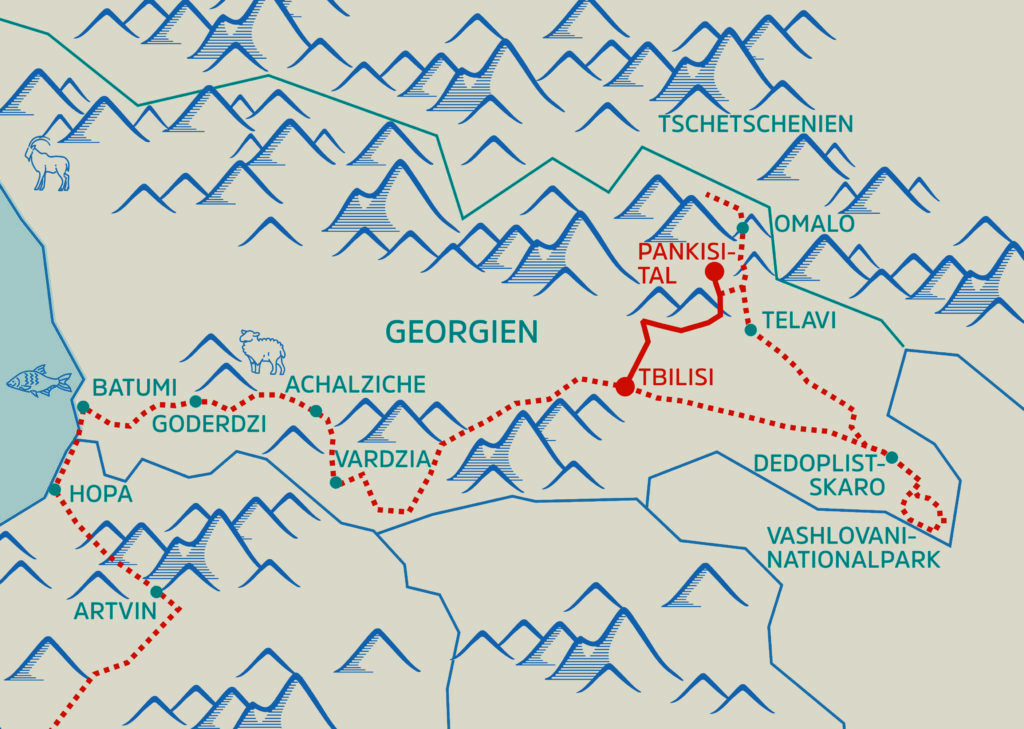
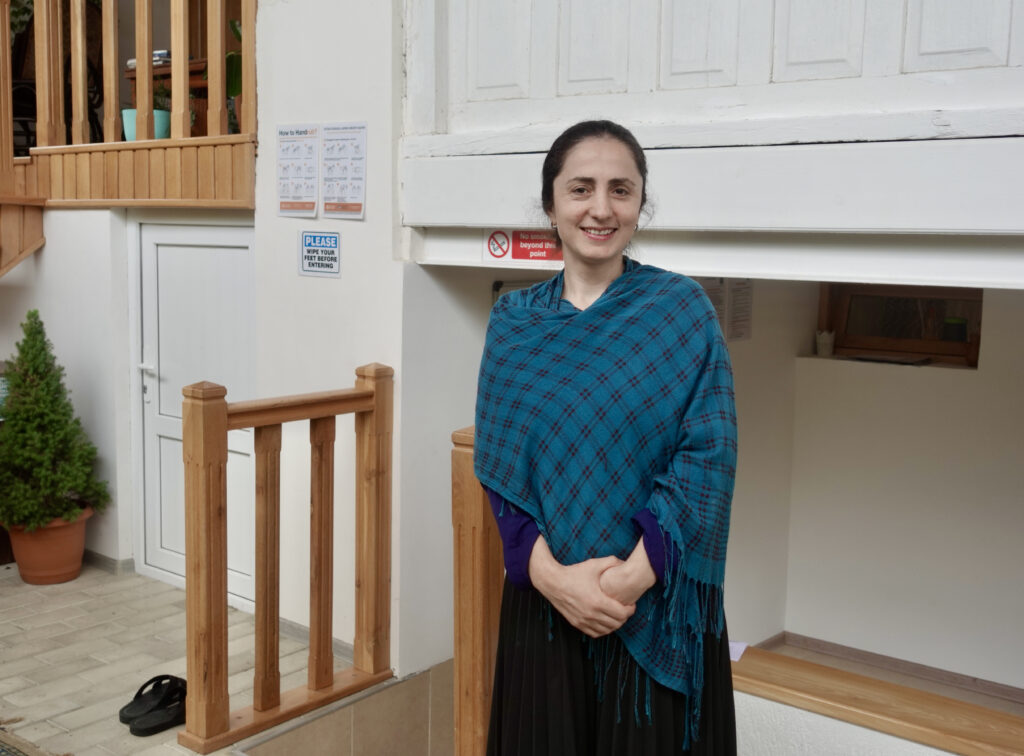
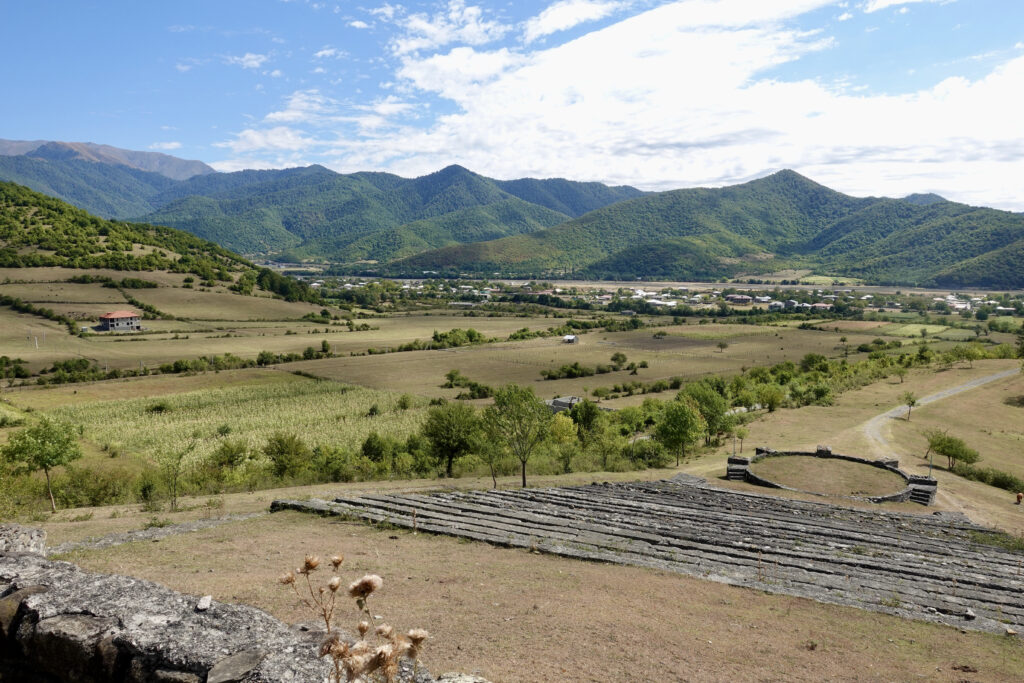
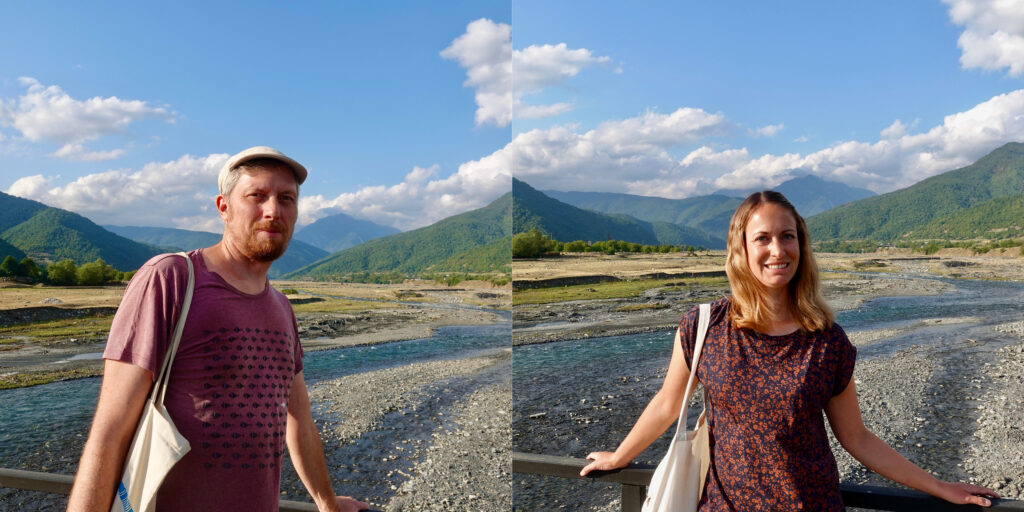
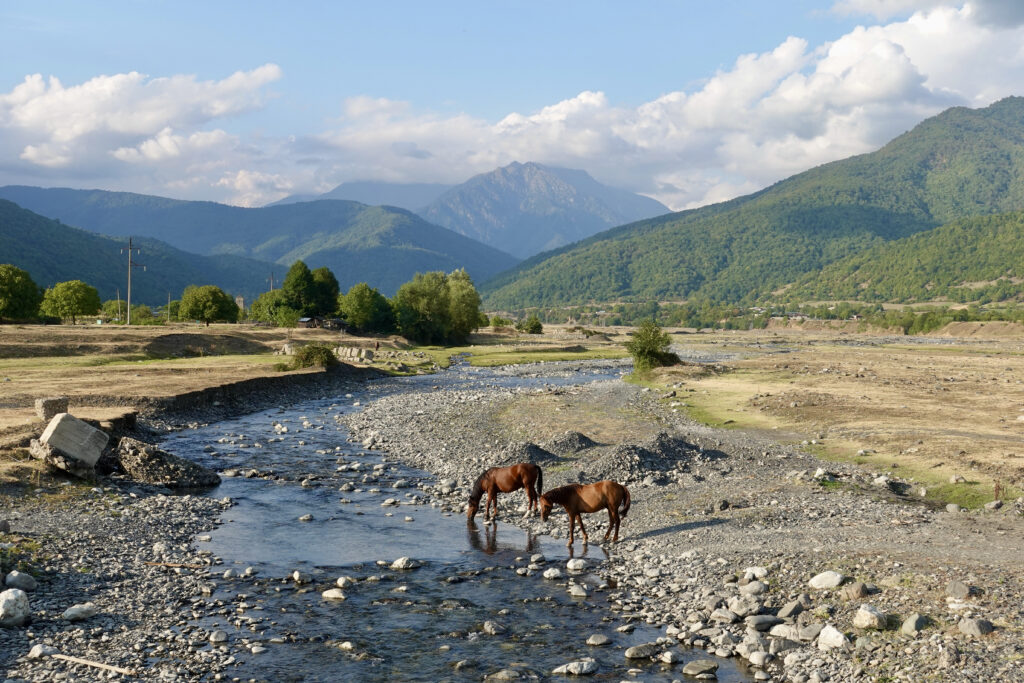
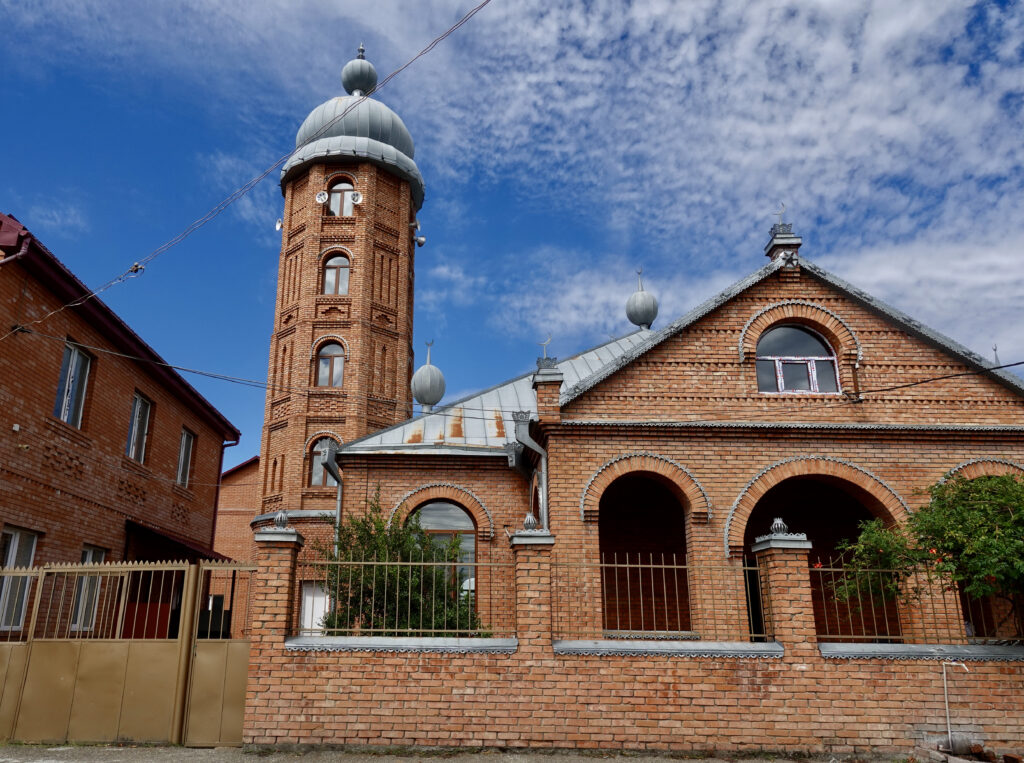
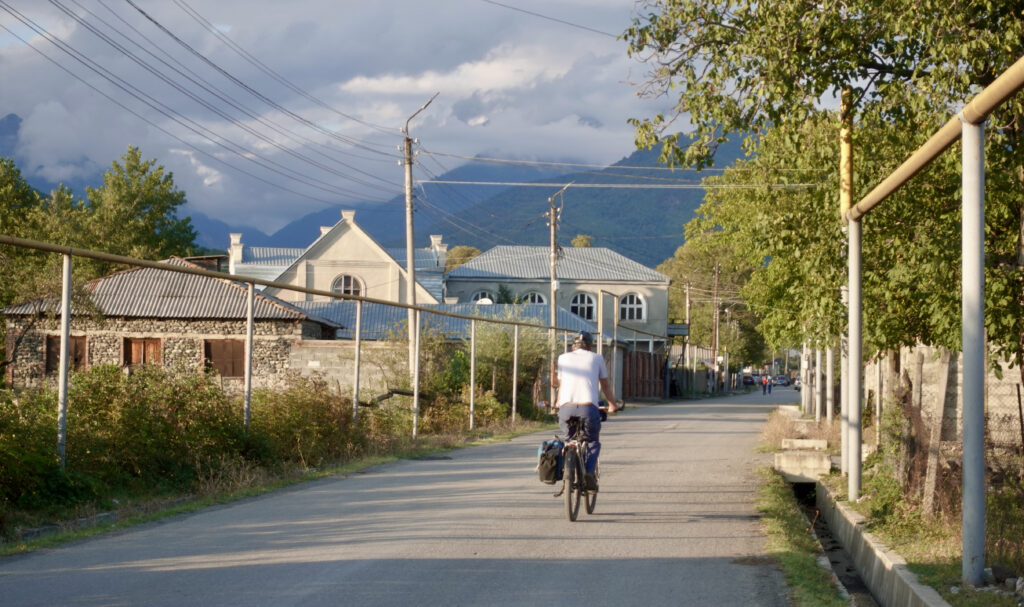
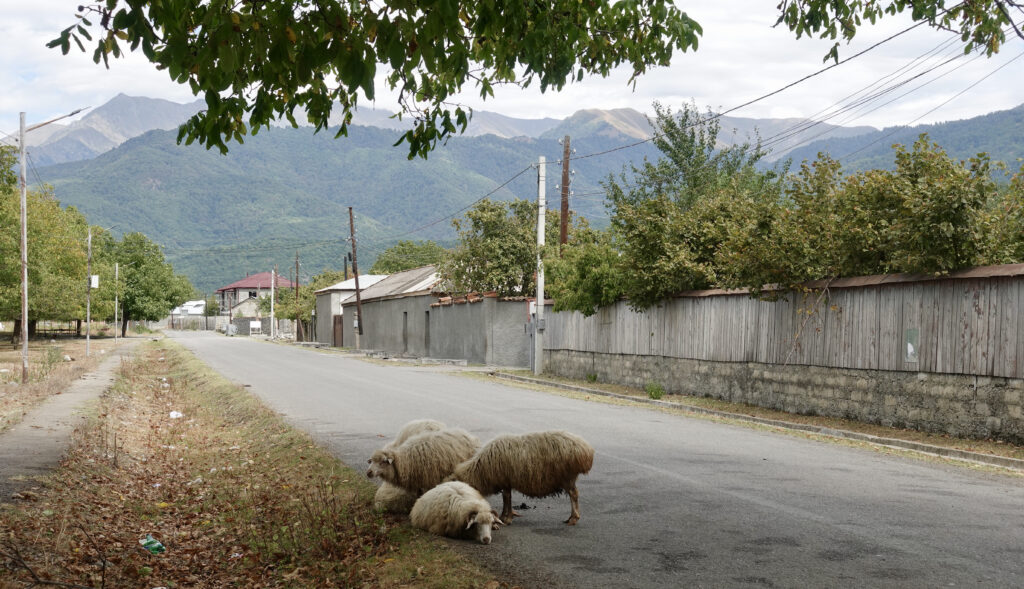
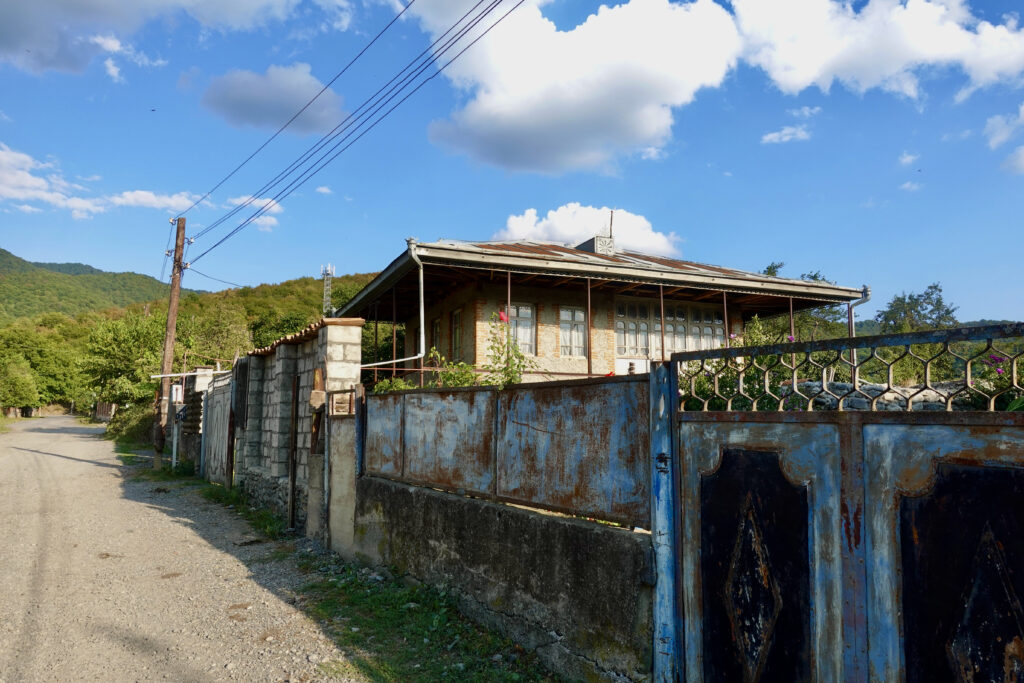
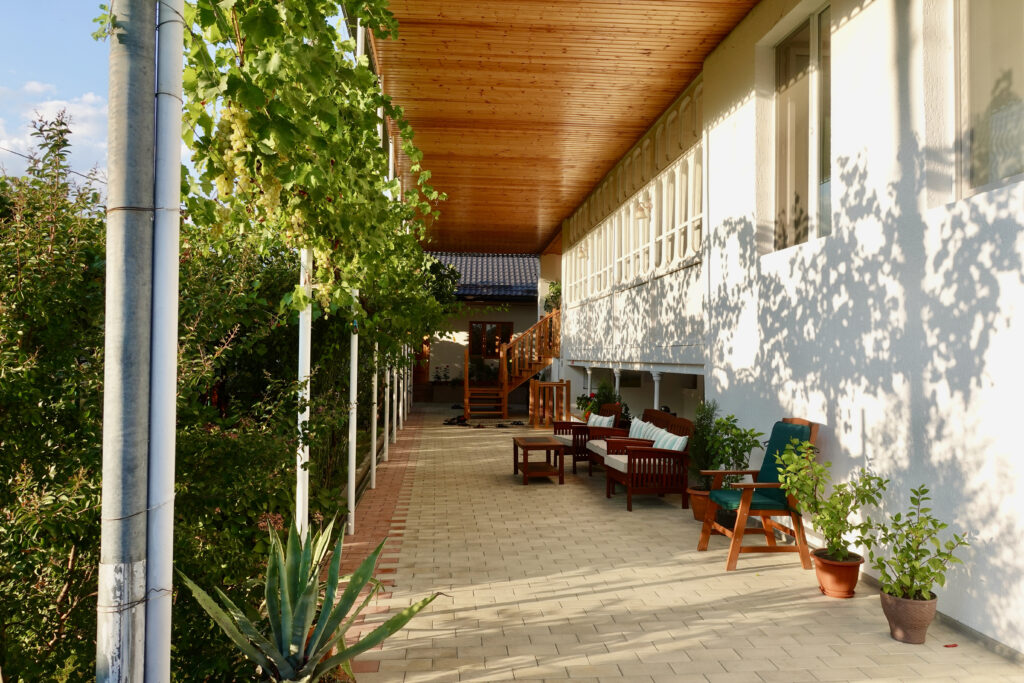
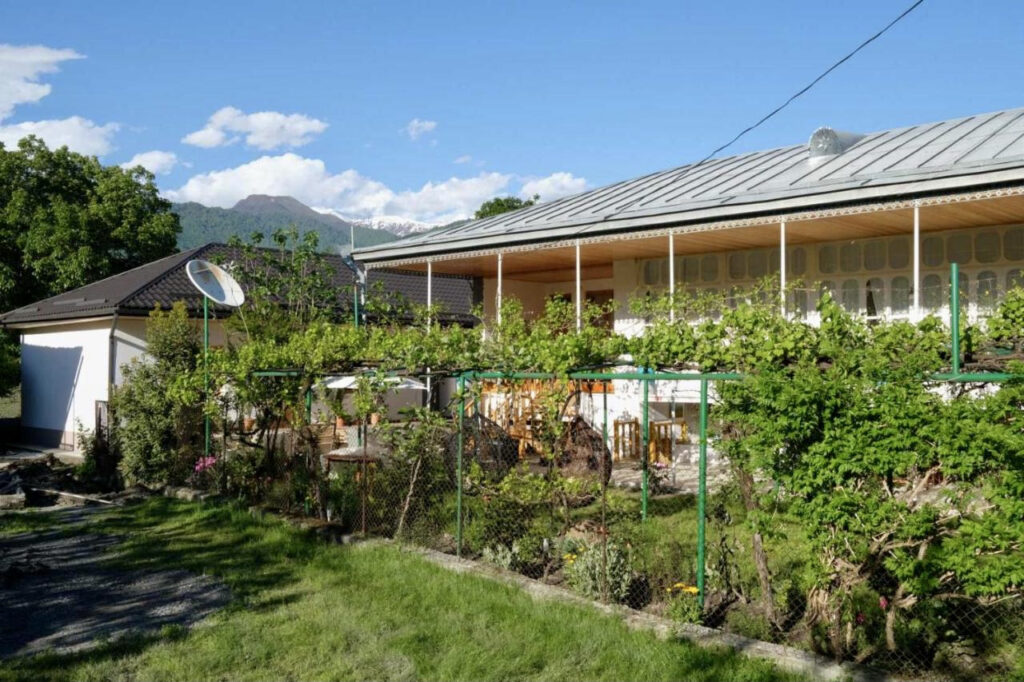
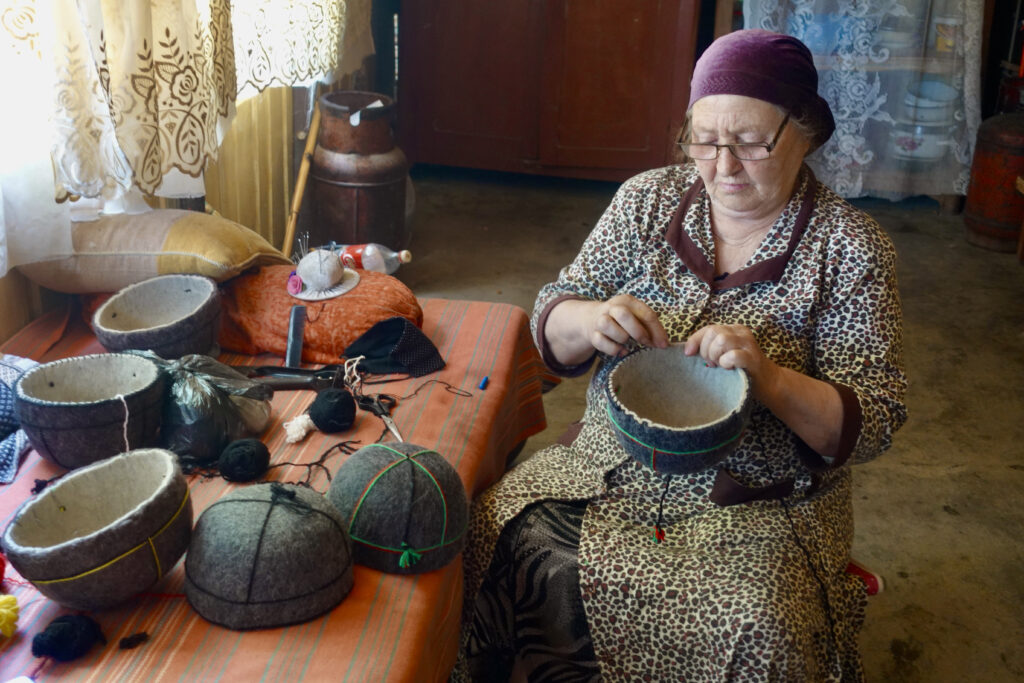
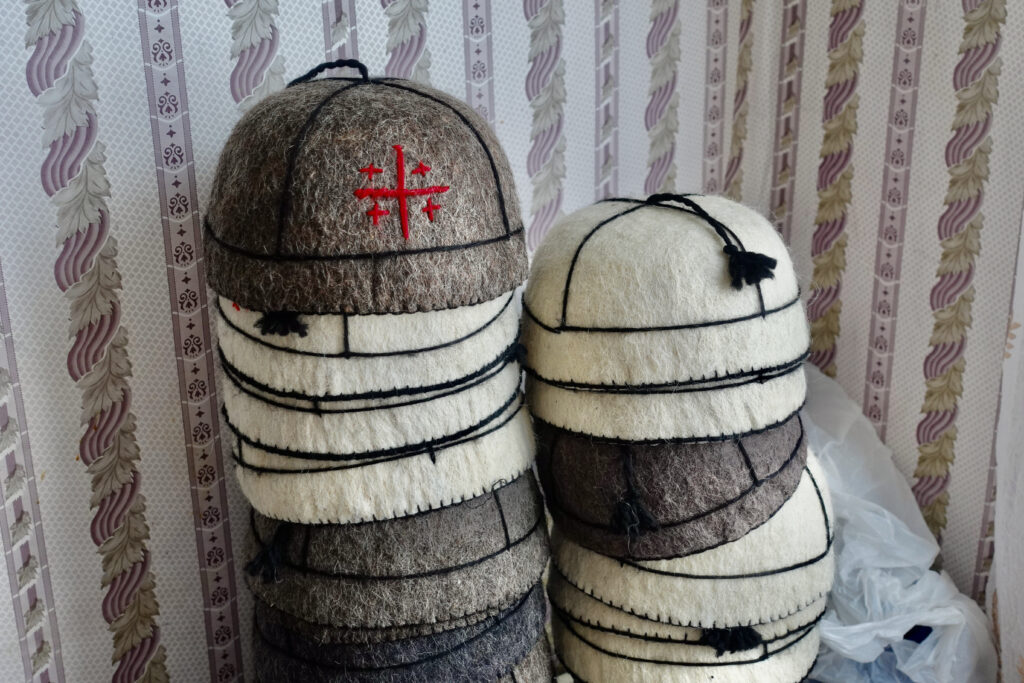
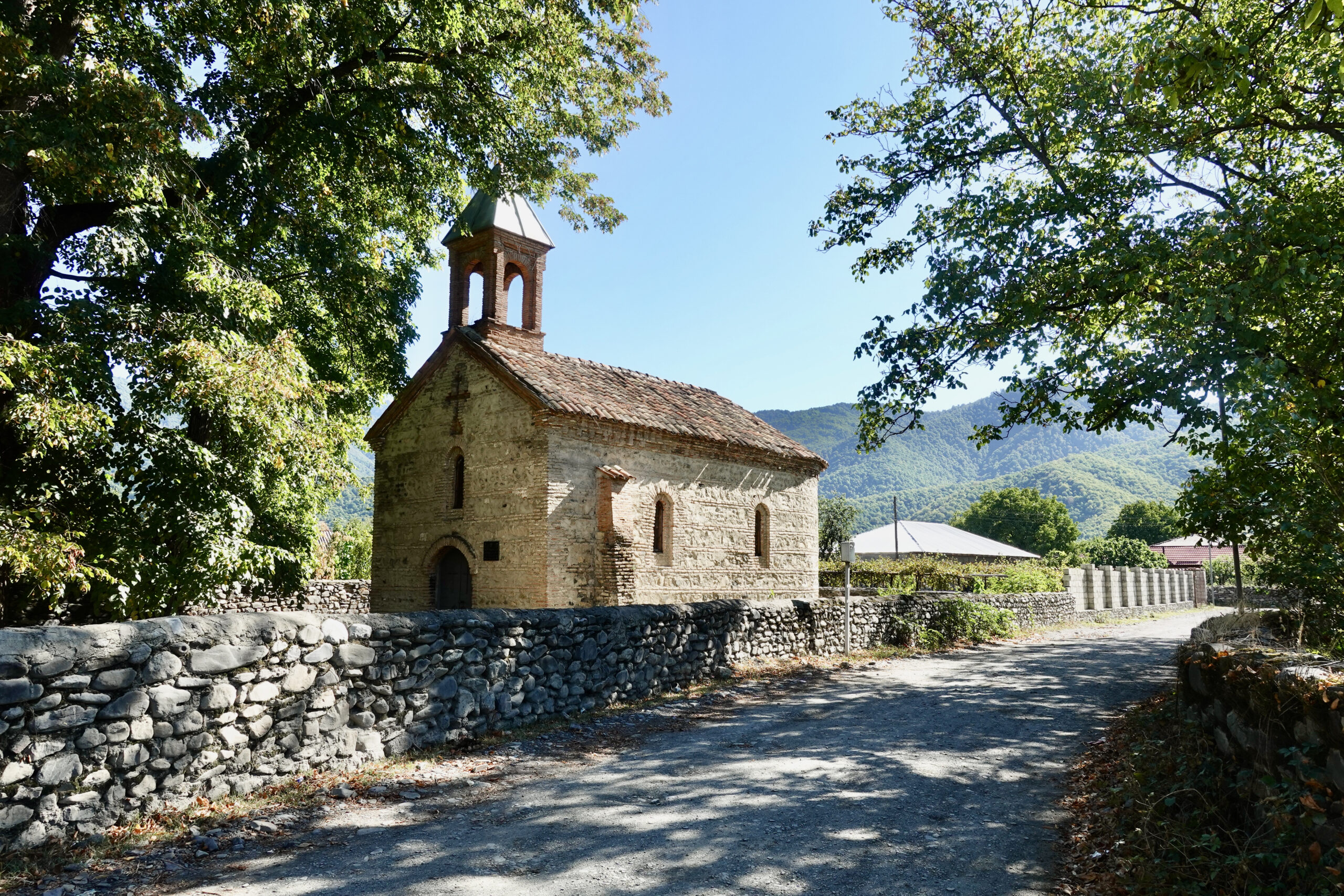
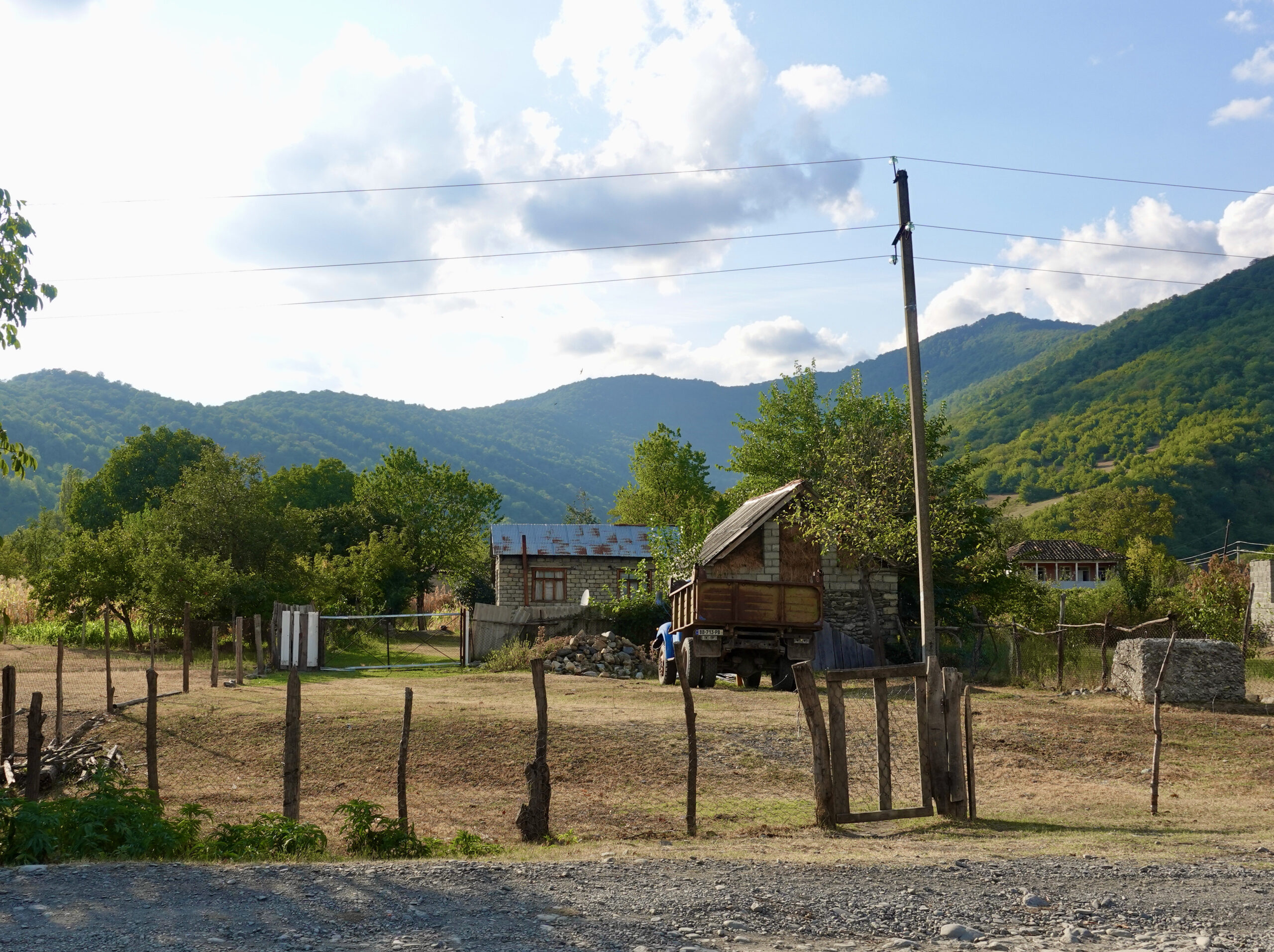
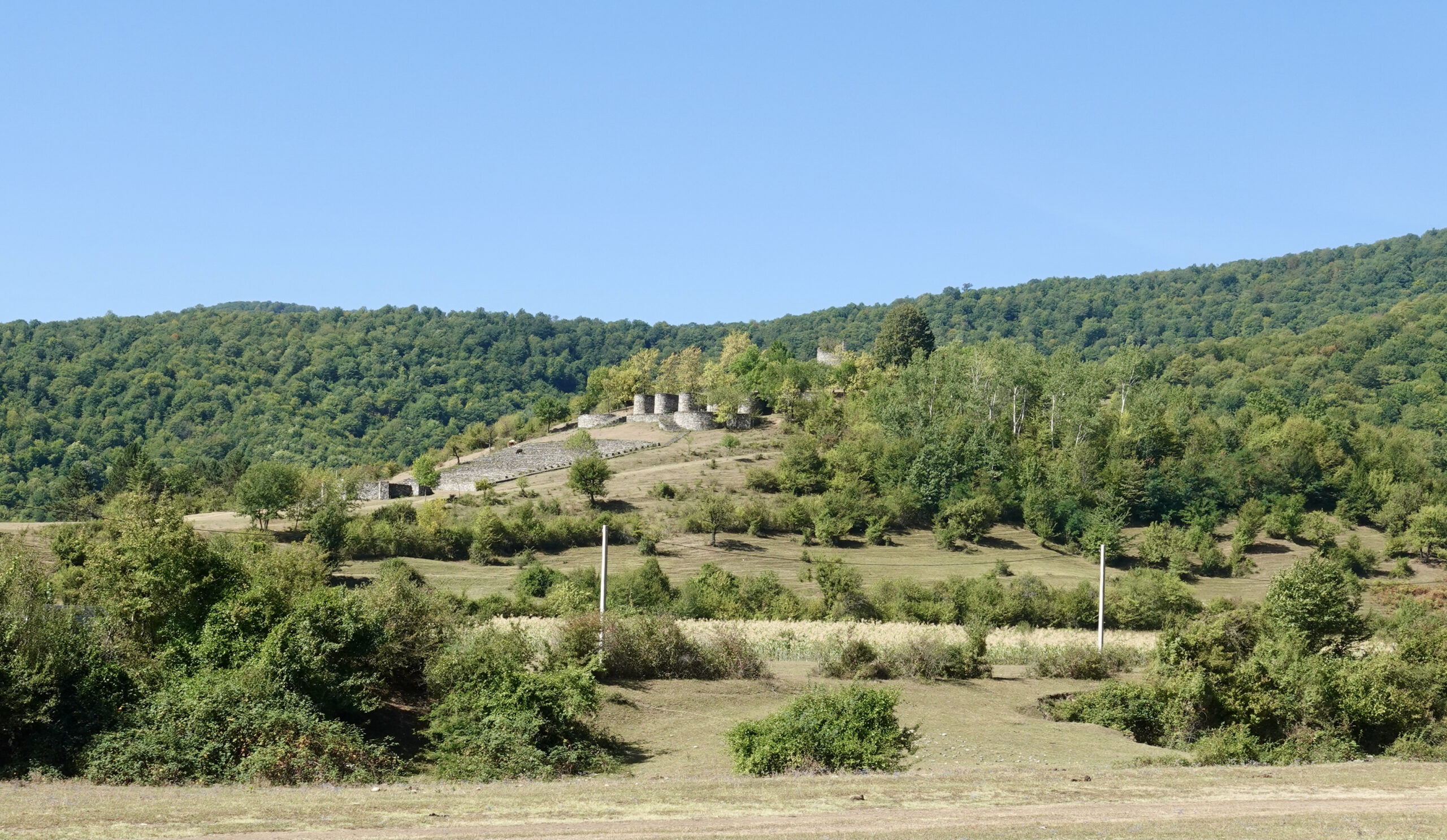
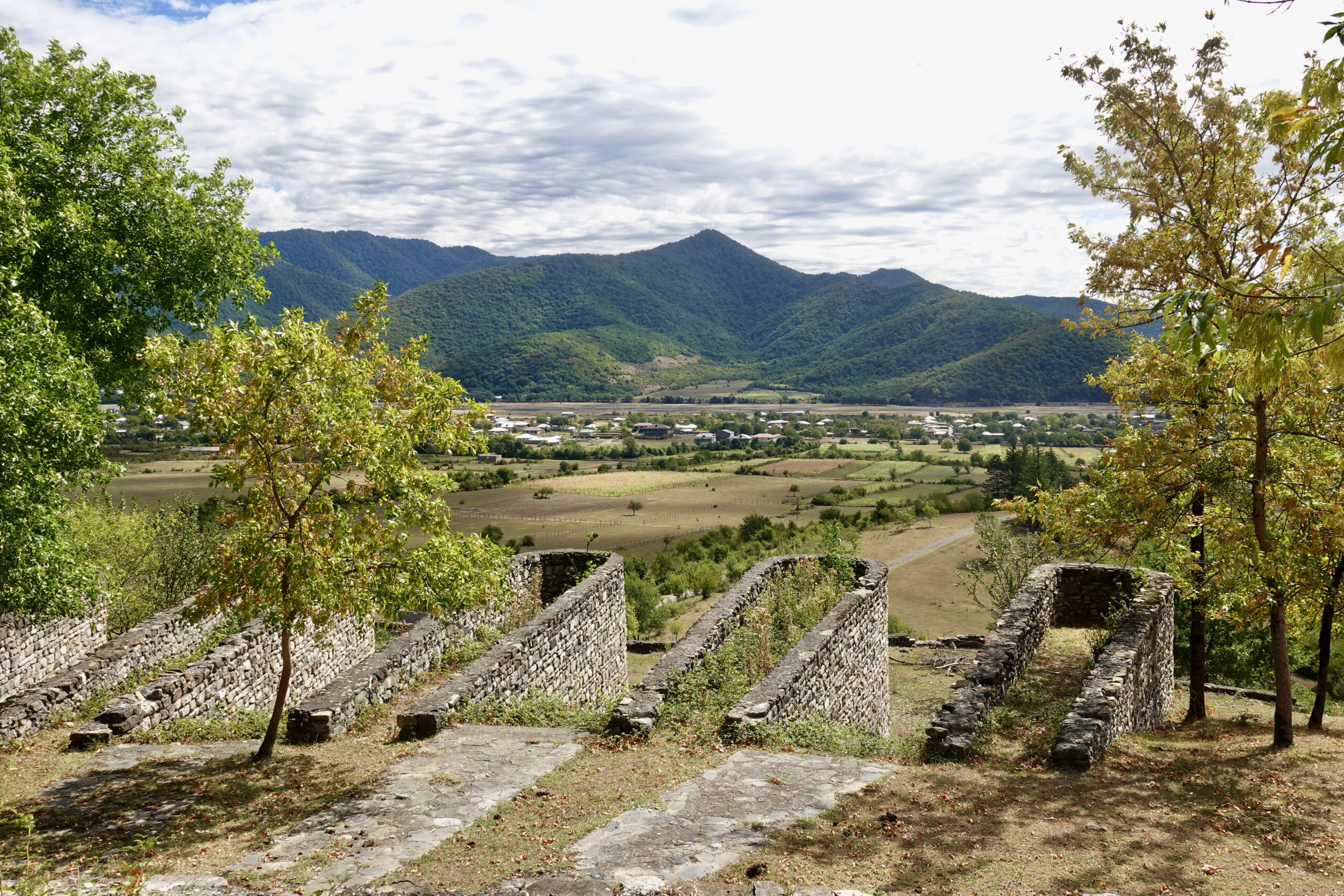
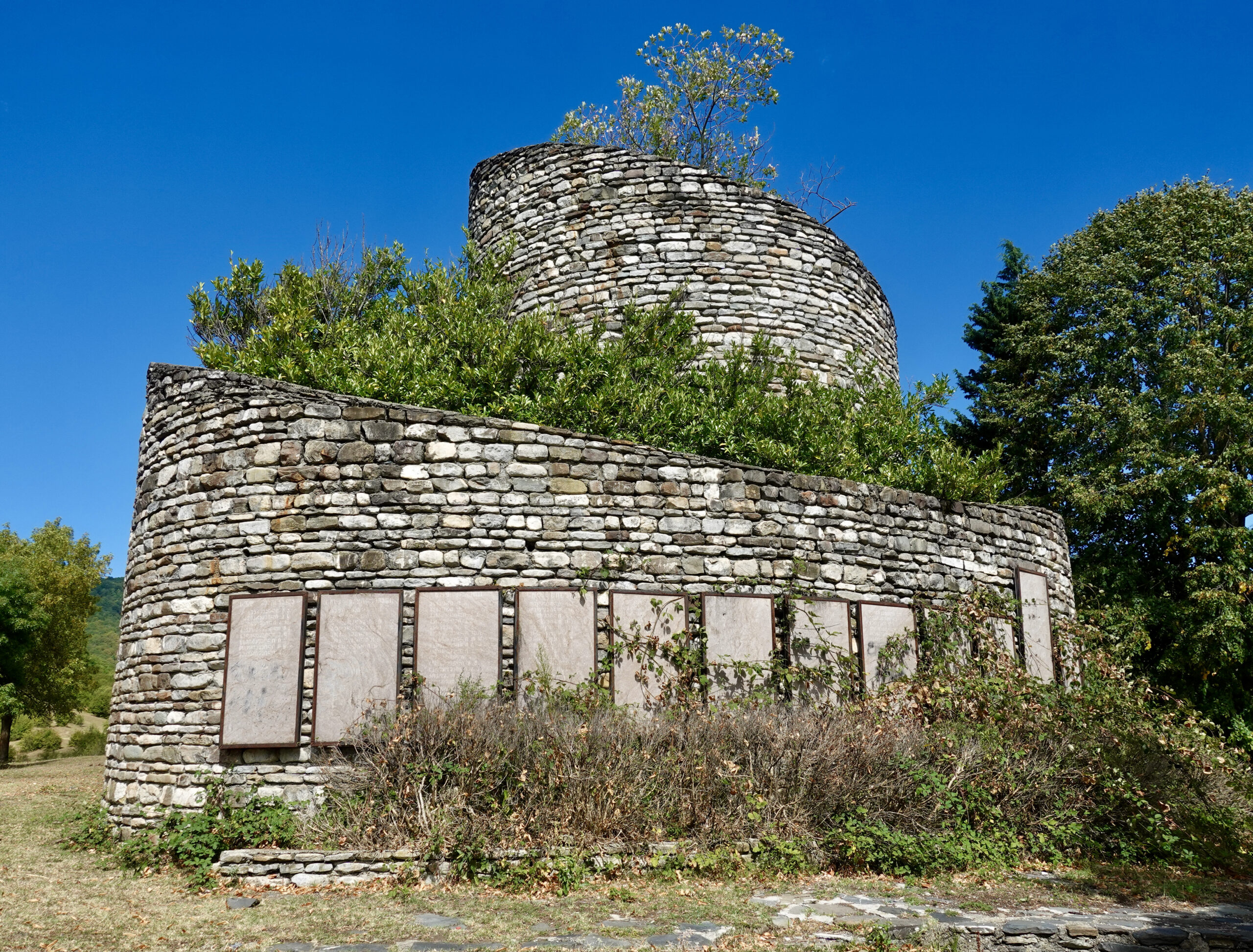
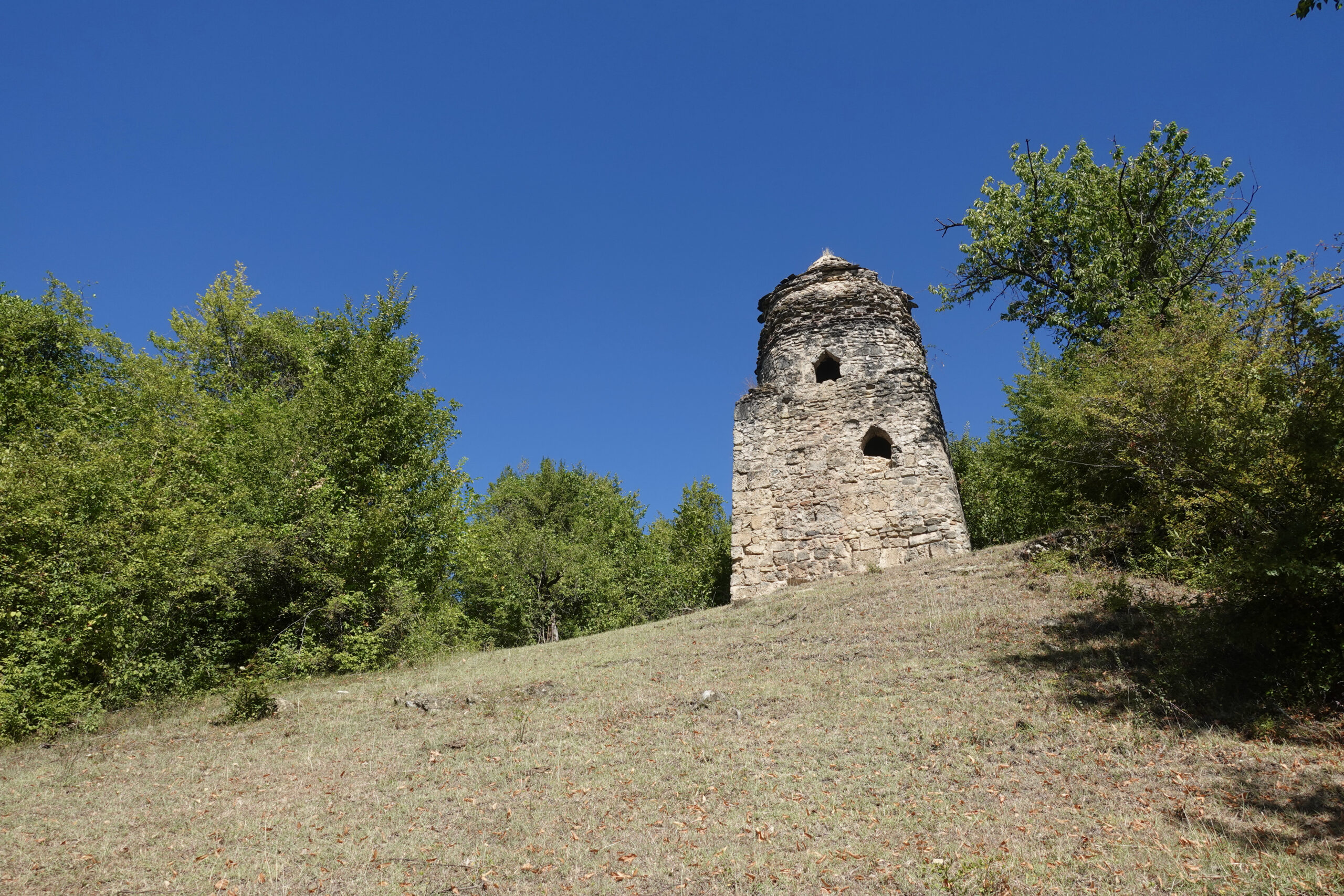
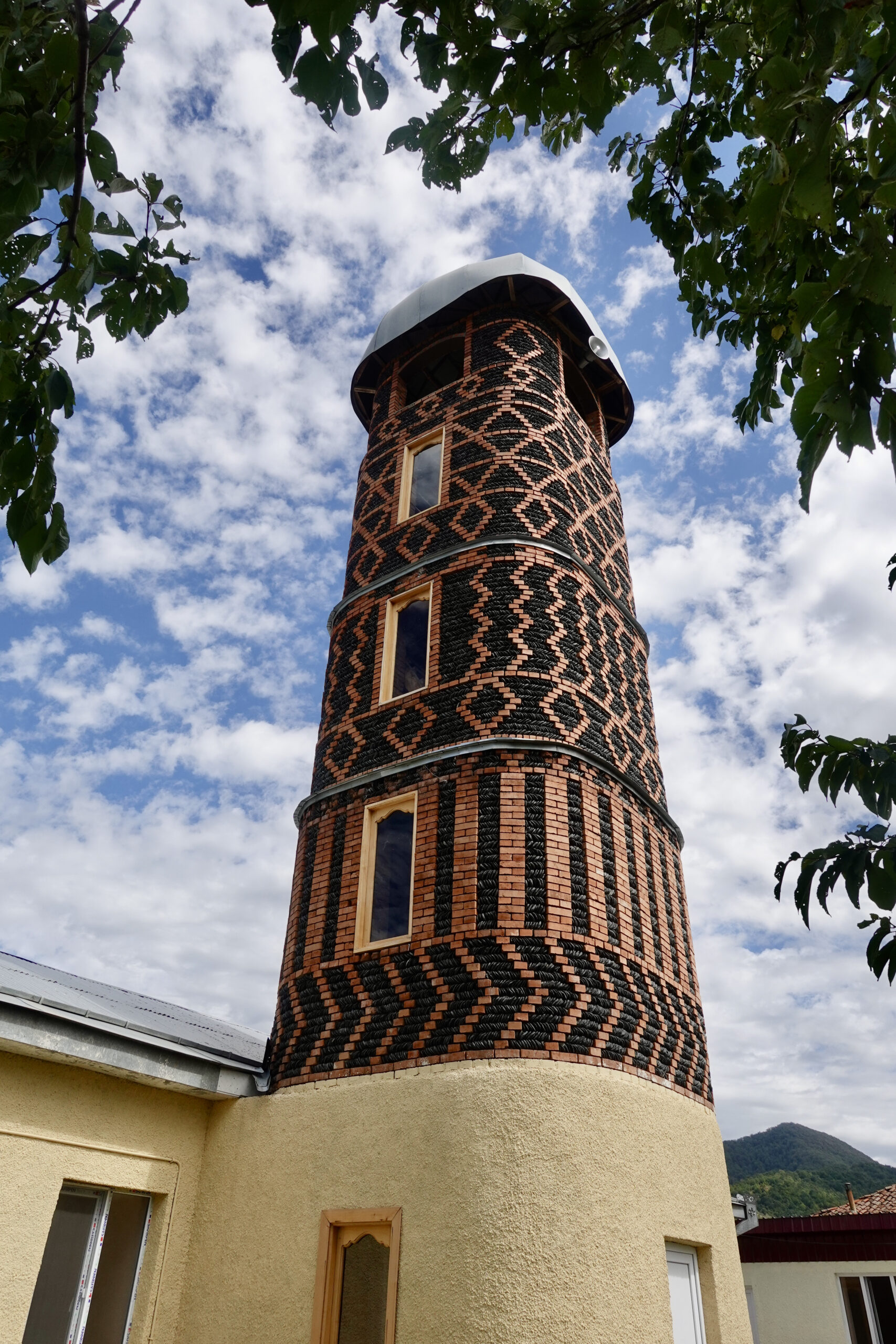
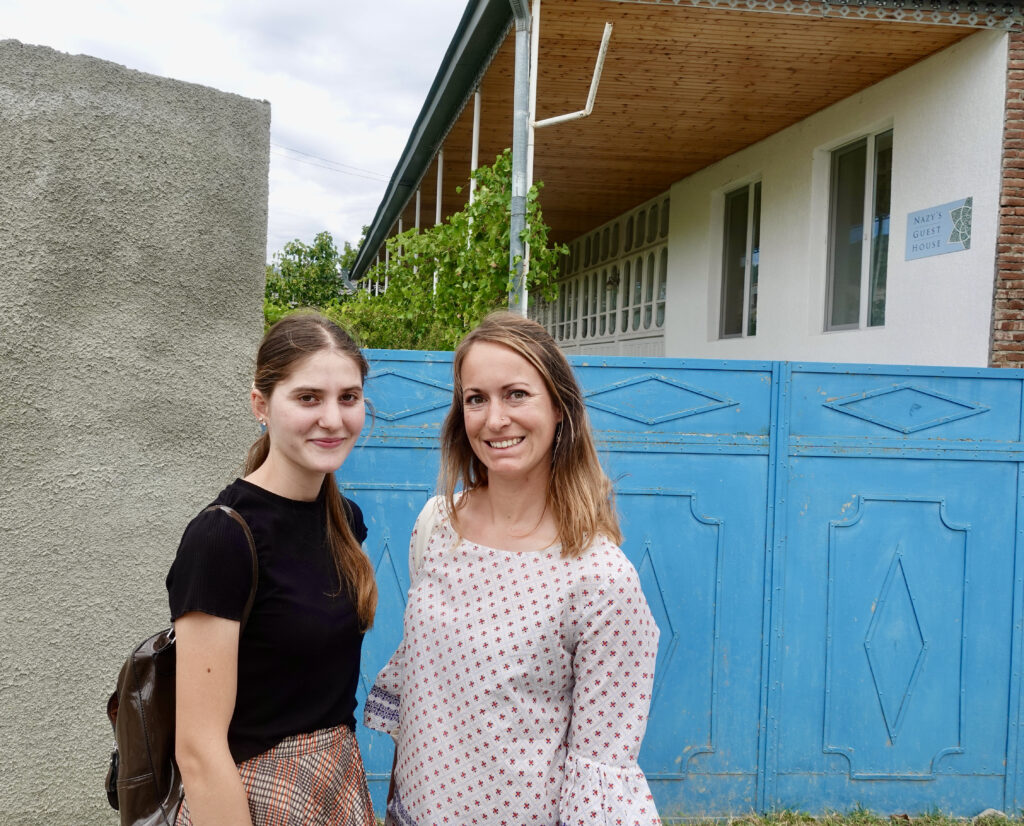
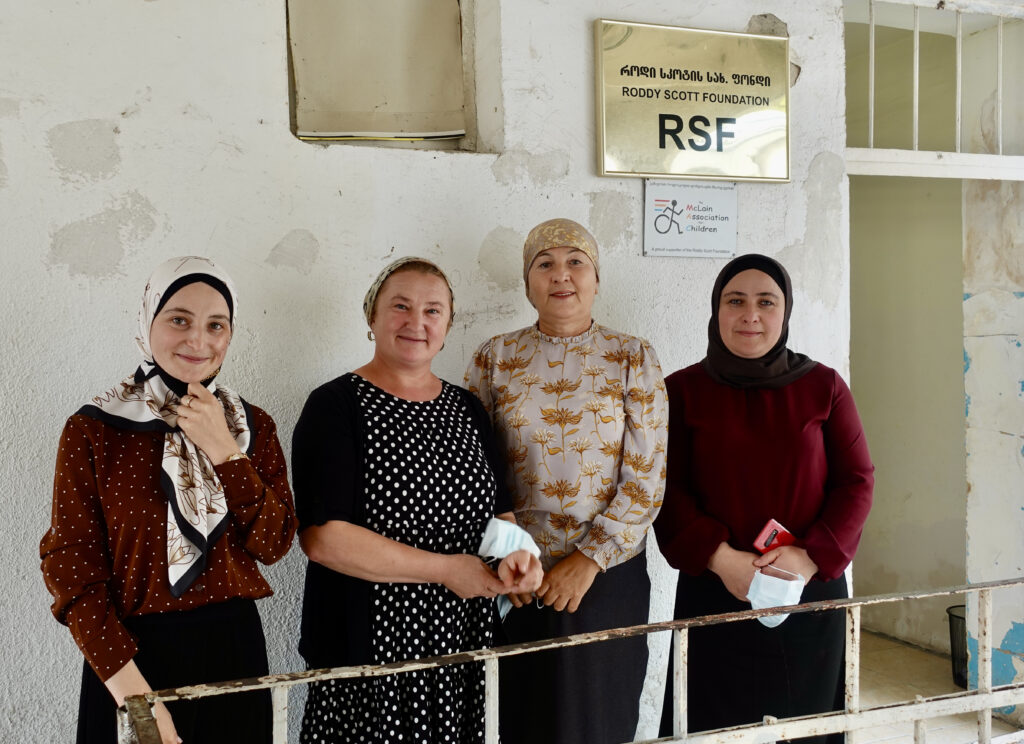
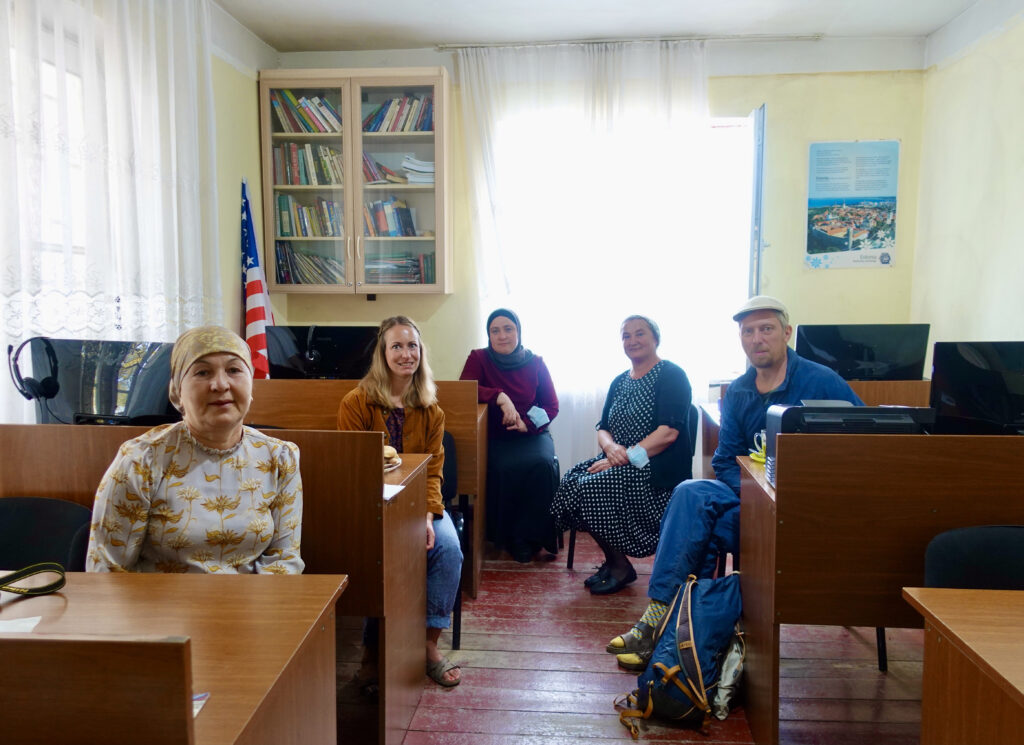
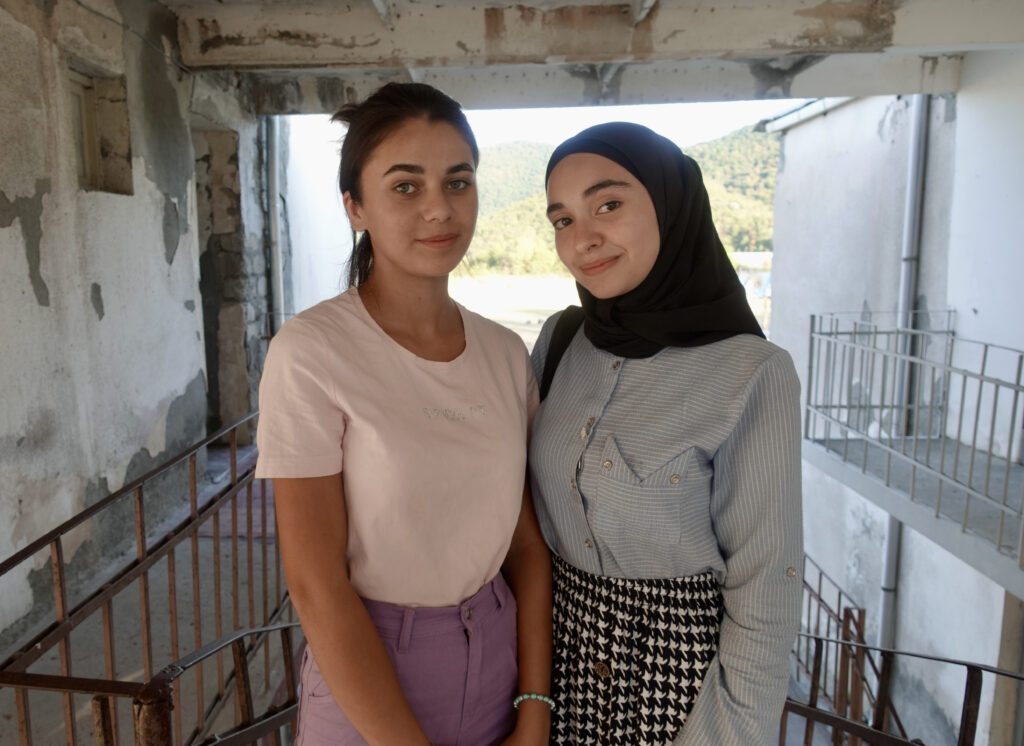
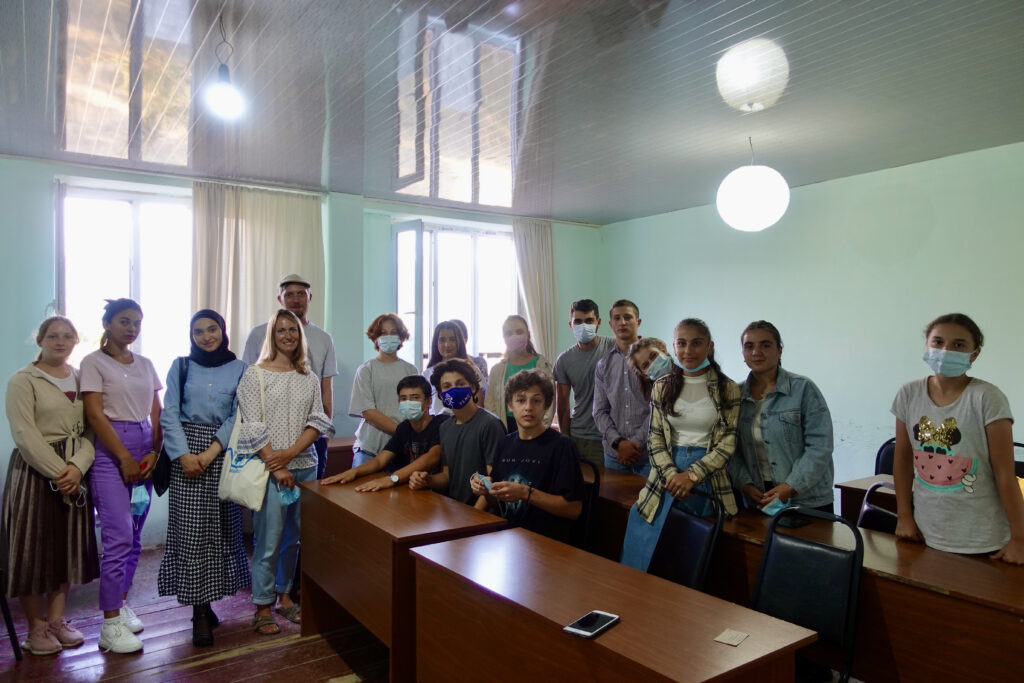
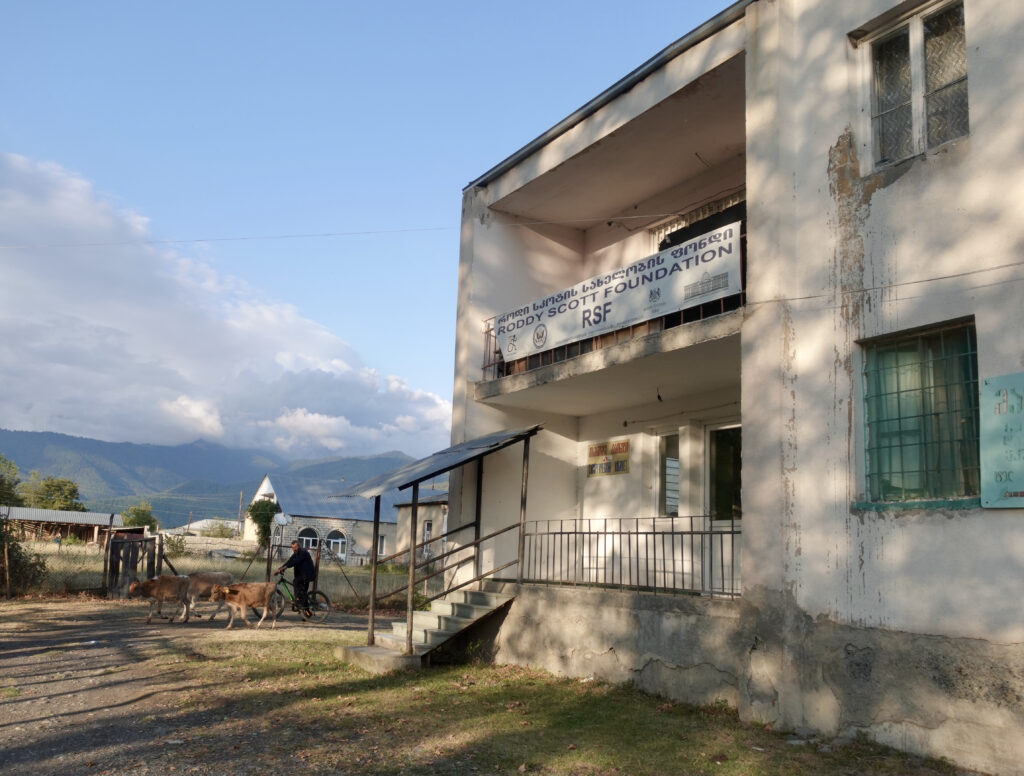

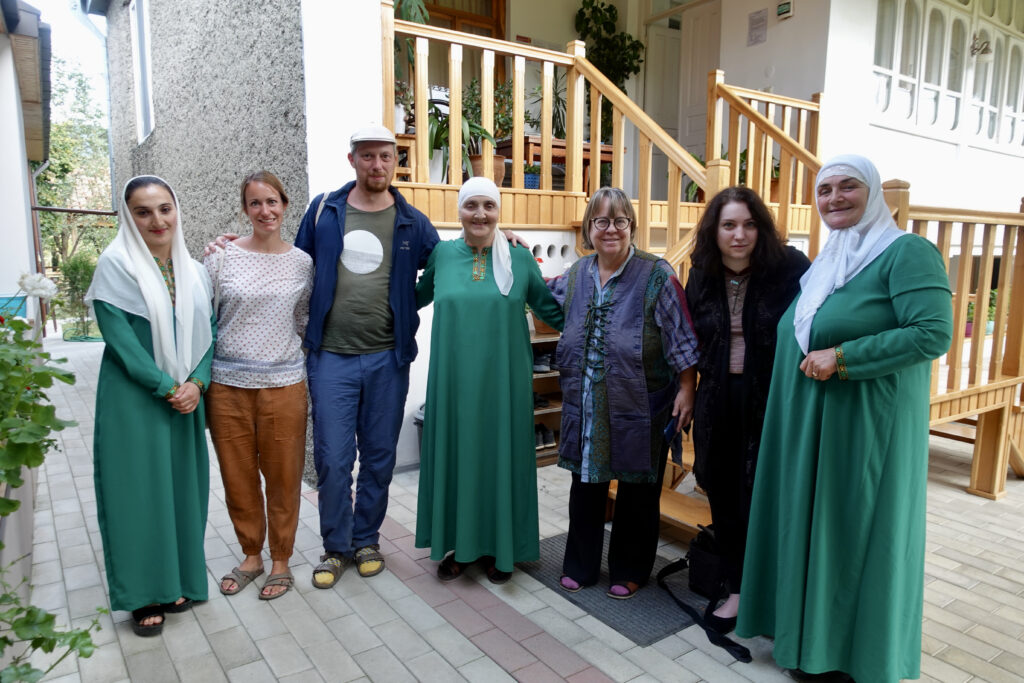

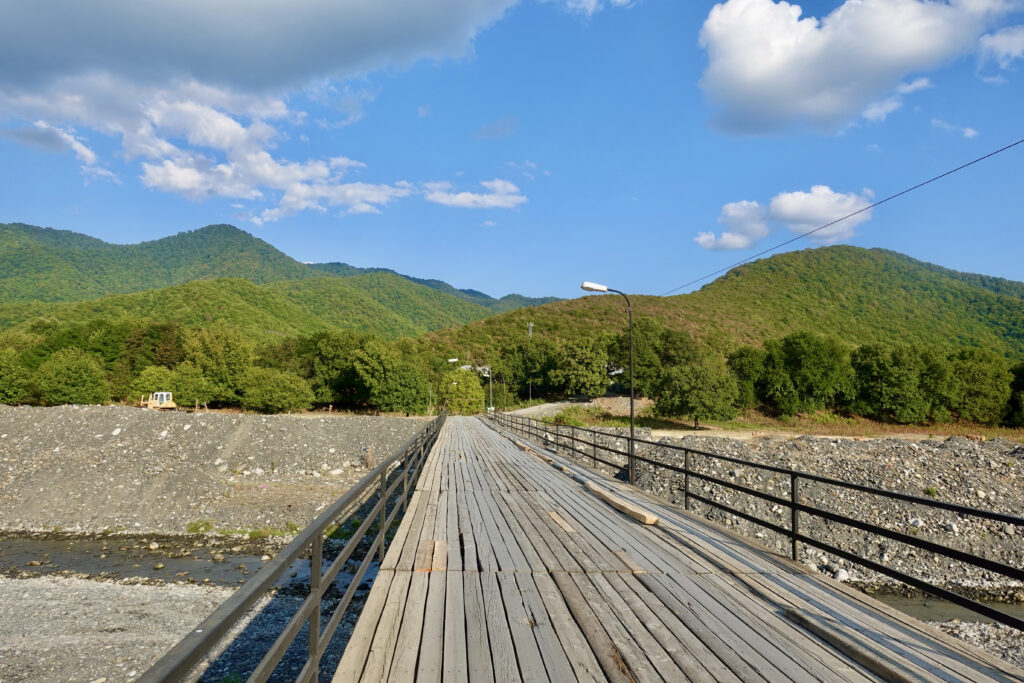
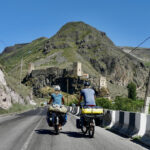
Leave a Reply